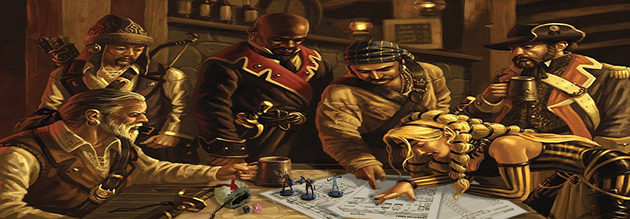
Dan wrote a great post about natural healing through various editions of D&D, and as usual his research is thorough and accurate. After reading it, I was surprised to see that the comment count was about ten times typical of his posts, and I was curious – what about this post got his readers so hotly debating? Possibly it could be simply that this is an area lots of us house rule and everyone was chiming in with how they handle it in their own games. That said, what I found really interesting was the topic of whether slow natural healing does or does not slow down the pace of the game itself. Dan tackles it thus:
I think I can imagine someone complaining “that’s too slow for our adventures!” but I actually don’t think there’s any legitimate justification for such a position. For example, MerricB writes above: “Without magic, it’d take weeks for a badly wounded fighter to get back on his feet!”, but I don’t see any fundamental reason why that’s a bad thing — merely non-cartoonish. We can, of course, simply hand-wave the weeks of recovery time in-game, just like we do for days or nights or whatever the camping pace is.
Here’s a counter-point, offered by user Nevermind:
The problem with “realistically slow healing” (which may or may not be relevant for your game) is not that it’s too slow for adventures. It’s that not all player characters are damaged uniformly. When the fighter loses 30HP and is bedridden for a month or whatever, the rest of the party are still fresh. And they want to go on an adventure!
With fast healing, the whole party spends a day healing and goes on. With slow healing, either healthy characters do nothing for a few weeks, or wounded characters miss some of the action.
I think this is a very interesting point, and echoes something I’ve seen in my own campaigns. The fact is, it is unlikely that on return to town that all party members are uniformly injured. More likely is that one character is badly injured (often a front-line fighter), and other members like the magic-user may be fresh as a daisy. The magic-user probably agreed to a return home for rest due to lack of spells, or wanting to level, or any other such reasons, but all that’s going to be over in a game day, and now that player is ready to get back at it.
Now Dan is correct in saying that as DM you can simply hand-wave the entire rest period. Inevitably though someone will ask “well, while he’s resting, can I go purchase equipment?” or any other of various mundane tasks. Sure, why not, that’s totally reasonable you think. “Does anyone else want to do anything during the rest period?”
And that question is where it all falls apart. The question is, what’s your town like? Is it a “last homely house”-like safe haven full of helpful and kind NPCs? Or is it a Lankhmar-like den of scum and villains? Personally I almost always opt for the latter. As I’ve posted about many times, I love using the carousing rules, which fills the game with thieves, cults, and various ne’er-do-wells. This has erupted into entire adventures, like the time one player went out, got drunk, and got abducted by a cult of shape-shifting cannibals disguised as an honest guild of silk merchants. The party spent an entire session scouting and then raiding the silk guild house, and I had to invent the entire contents of the silk guild on the fly. It was super fun – I think we all remember that session very fondly.
But there’s the problem — where is the line between an innocent downtime activity and triggering a whole adventure? My players try to make the best use of in-game time, and it’s perfectly reasonable for them to want to spend some of it chatting up the local constabulary or seeking out sellers of rare antiques while their comrade is laid up. But nobody is happy when that snow-balls into a huge adventure that one player is completely precluded from simply because his character is trying to heal.
A quick aside – this happened in my game most often through use of the “raise dead” spell, which very explicitly requires weeks of bed rest in B/X D&D. I actually rather like that rule, and I also make the components of the spell rare and expensive, as I like to make sure dying in my game, while not necessarily the end of a character, still quite a set-back for the entire group. Though this is perhaps a more extreme example of what Dan was posting about (one could argue that for natural healing delays the players can and should just pony up some magical healing if they want to dive into a city adventure), I think it’s still an interesting mental exercise as I believe it’s this kind of play that lead to faster healing rules.
So, where does this leave us? I actually like all of Dan’s arguments for slower healing, so I’m not suggesting we turn to modern healing rates. Instead, I think we need to be better at managing downtime activities, and setting player expectations of what they can and can’t do. I think as DM it’s our responsibility to take the reins and apply a little meta-game guidance to the players. Perhaps start by simply saying something like “While Brutalitops is recuperating, you guys can do any simple book keeping activities like purchasing supplies or leveling up your characters.” When a player asks “can I ask the inn keeper if he’s ever heard of the Cult of Sklaa?” you can answer “sure, but let’s have that happen on the last day of the rest cycle in case it leads to a new adventure.”
Of course we don’t always know what activities might lead in this direction, but in such case I think it’s fine to ret-con. For example, say the players want to carouse and the resting player wants no part of it, so they decide to do it while he’s recuperating. One of them fails spectacularly and it leads to something that’s likely to launch a longer interaction or even adventure. At that point I think it’s fine to say “guys this is leading into some real action, so I’m going to rule it actually happened on the last day of Brutalitops’ rest so that Peter can participate.” I’d be very surprised if any of the players would have a problem with that.
Ultimately, it’s about knowing when to address your players vs. when to address their characters. Yes, it’s a bit awkward, but we can and should talk about the game we’re playing as players from time to time. And I don’t think it’s so mood breaking to do it mid-stream. This actually echoes something Frank Mentzer said to me about how Gygax ran things. Frank pointed out that when something came up that required a difficult or unusual ruling, Gygax would end his ruling with “does that sound fair?” It’s a pretty simple turn of phrase that forces the player to step away from worrying about their character’s needs and think about the game as a game for second – something I think all players can and should be forced to do from time to time.



There’s 100 things to do in any town. The most important ones require no combat or strain.
Training up a level
Creating a magic item or commissioning one
Spell research
Simple shenanigans and carousing
Solving a mystery or helping townsfolk
Construction
Having a baby
Hiring henchmen
Hiring a sage or specialist
There’s lots of stuff to do between one module and the next.
Good stuff! That’s a really good “further research” topic from the healing post that I didn’t plan to get into (exactly what the philosophy is around handling downtime).
I was also really surprised at the explosion of comments that the healing article triggered. I wonder how correlated that is with it being the single most radical change that I’ve dug up in the “through the ages posts” (continuously doubling natural healing so it’s now 100x where it started). Seems to suggest a big philosophical break between the original game and now.